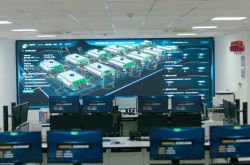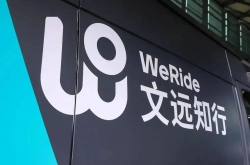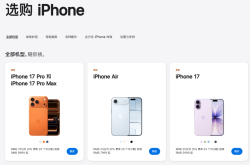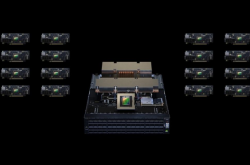Xiaoxiang Supermarket may become the next 'Meituan Ride-hailing'
![]() 11/08 2024
11/08 2024
![]() 629
629
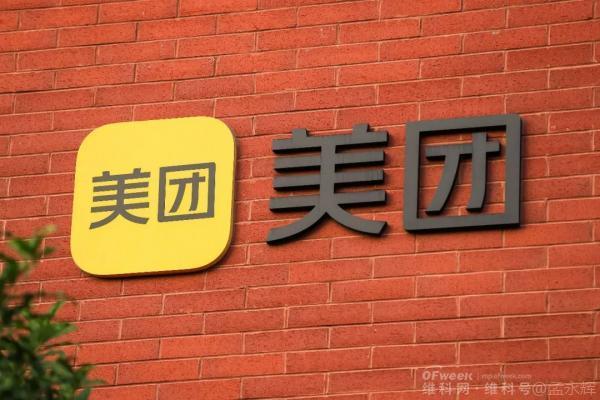
Against the backdrop of profound changes in retail models, both online and offline players need to undergo a transformation and upgrade to remain in the game.
Both Miniso's acquisition of Yonghui Superstores at a huge cost and Meituan's aggressive push for Xiaoxiang Supermarket are direct manifestations of this phenomenon.
However, just as Miniso's acquisition of Yonghui Superstores was not favored by the outside world, Xiaoxiang Supermarket, which Meituan places high hopes on, will likely face a similar fate.
If we summarize and define Meituan's current moves in deploying its new retail model, it is akin to Meituan entering the ride-hailing sector during the turmoil of ride-hailing competition, continuing its previous approach.
While in the short term, Meituan's deployment through Xiaoxiang Supermarket can achieve certain results, in the long run, as competition in this new retail model intensifies, Xiaoxiang Supermarket will not only fail to become a new growth point for Meituan but may even lead its development into a new dead end.
If we summarize and define Xiaoxiang Supermarket, it is similar to Meituan's acquisition of Mobike and its deployment in ride-hailing: a with vigour and vitality start, but ultimately ending up in obscurity.
I
Through Meituan's deployment of Xiaoxiang Supermarket, we can see a similar development trajectory and smell a similar scent.
Namely, Meituan is merely participating based on its delivery advantage without truly touching the 'soul' of the new retail model.
Some may argue that Meituan's deployment in Xiaoxiang Supermarket is not merely about delivery but also involves its own warehousing.
Nevertheless, Meituan still cannot meet the current demands of the new retail model's development.
The reason is that the ongoing transformation in the retail industry is not merely reflected in warehousing and logistics but more so in enhancing user experience.
For the vast majority of users, what they truly need is a new model that can make up for the shortcomings of offline supermarkets and online e-commerce models, rather than the so-called new model that Meituan provides solely in warehousing and logistics.
For Meituan, it may initially gain some traffic through promotional efforts, but once such subsidies become unsustainable, especially when users and consumers realize that the products and services provided by Meituan through Xiaoxiang Supermarket cannot meet their needs, their favorability towards Xiaoxiang Supermarket will inevitably decline further, leading it to obscurity.
Some may argue that in addition to building its own warehousing, Meituan also empowers offline supermarkets with traffic, which can compensate for Meituan's shortcomings in warehousing.
However, we must also recognize that even if Meituan can empower offline supermarkets with traffic, for Meituan, offline supermarkets are also a source of traffic.
Through the above analysis, we can see that whether Meituan builds its own warehousing or empowers offline supermarkets with traffic, ultimately, Meituan is still continuing its previous traffic-driven approach and has not innovated on the new retail model, especially in meeting new user demands.
While such an approach may bring some promotion to Meituan's development, once Meituan's subsidies become unsustainable, its development will still fall into a new dilemma.
II
If the unchanged traffic mindset leads Meituan's deployment in Xiaoxiang Supermarket to inevitably end up in the same dead end as Meituan Ride-hailing and Meituan Bike.
Then, the key reason why Meituan's deployment in Xiaoxiang Supermarket will inevitably fall into a dilemma is that Meituan is still stubbornly adhering to the platform model without truly finding the right way to combine the platform with entities.
We all know that when the platform model began to reach a dead end, a series of internet players embarked on a new transformation and upgrade.
If we summarize and define such a transformation and upgrade, de-platformization is undoubtedly a major direction.
In fact, in this new transformation, Meituan has recognized this trend.
For example, a few years ago, Wang Xing adjusted Meituan's overall development strategy from a platform strategy to a 'Retail + Technology' strategy.
However, although Meituan's strategy has shifted from a platform model to a retail-led development model, through Meituan's actions, we can see that it is still stubbornly adhering to a platform-dominated development model and has not broken out of the previous development cycle.
This deployment of Xiaoxiang Supermarket by Meituan can be seen as a direct manifestation of Meituan's stubborn adherence to the platform model.
Why do I say that?
The reason is that whether Meituan builds its own warehousing or empowers retail stores and supermarkets with traffic, Meituan itself is still essentially a matchmaking and intermediary platform rather than a true retailer, unable to provide users and consumers with a new experience that encompasses both online and offline.
When Meituan is still stubbornly adhering to the platform model, especially when it fails to bring essential changes to the traditional offline and online retail models, Meituan's attempt to carve out a new pie in the context of new retail through Xiaoxiang Supermarket will inevitably face more difficulties and challenges.
III
The unchanged traffic mindset and excessive obsession with the platform model have made Xiaoxiang Supermarket the next Meituan Ride-hailing.
Similarly, the difficulty in reshaping one's role and positioning is the key reason why Meituan will inevitably fall into an even bigger dilemma.
It must be said that Meituan does have a significant advantage in logistics and delivery.
Such an advantage allows Meituan to venture into many businesses such as instant retail and same-city delivery, and the traffic on the Meituan platform also allows it to extend its reach into areas such as ride-hailing and community group buying.
One of the important reasons why Meituan wants to 'do everything' is that it defines itself as a third party rather than truly becoming a part of a new industry or new retail.
Meituan's such positioning is not much different from its positioning in the internet era.
While such an approach can achieve development through scaling, when Meituan finds it difficult to achieve new and greater development with such a model, its development will still fall into a new dilemma.
From this perspective, Meituan's approach through Xiaoxiang Supermarket shares the same thread as Meituan's acquisition of Mobike and its involvement in Meituan Ride-hailing.
It is certain that if Meituan merely defines itself as a third party and sees itself solely as a platform, unable to find the right way to integrate with upstream and front-end industries, then when Meituan finds it difficult to obtain new development dividends based on its previous role and positioning, its development will still fall into a new dilemma.
As platform-based players represented by Alibaba, JD.com, and Pinduoduo increasingly seek ways to integrate with upstream and front-end industries, and as the integration of digital and real economies becomes more profound and complete, Meituan must abandon its role as merely a platform and a third party and truly dive into the industry's overall development to bring its own development to a new stage.
If Meituan fails to change this approach, its involvement in Xiaoxiang Supermarket will inevitably end up like its previous ventures into bikes, ride-hailing, and community group buying, achieving only short-term results without fundamentally changing the current dilemma faced by Meituan.
Conclusion
As the retail industry enters a new phase of transformation, Meituan can hardly contain its excitement and, like its previous ventures into ride-hailing and community group buying, has embarked on this new retail transformation.
However, through Meituan's approach, we can see that it is still continuing its previous practices and has not brought any new innovations to the retail industry through Xiaoxiang Supermarket.
For Meituan, such an approach may have a positive impact on its development in the short term.
Once the effectiveness of such an impact is exhausted, Xiaoxiang Supermarket will inevitably become obscure, like Mobike and Meituan Ride-hailing before it.
Essentially, this is still determined by Meituan's obsession with traffic, its infatuation with the platform model, and its lack of a new change in its role and positioning.
If Meituan remains stubborn in this regard, Xiaoxiang Supermarket may not become a benchmark for Meituan to open a new retail model but instead become the next 'Meituan Ride-hailing'.


